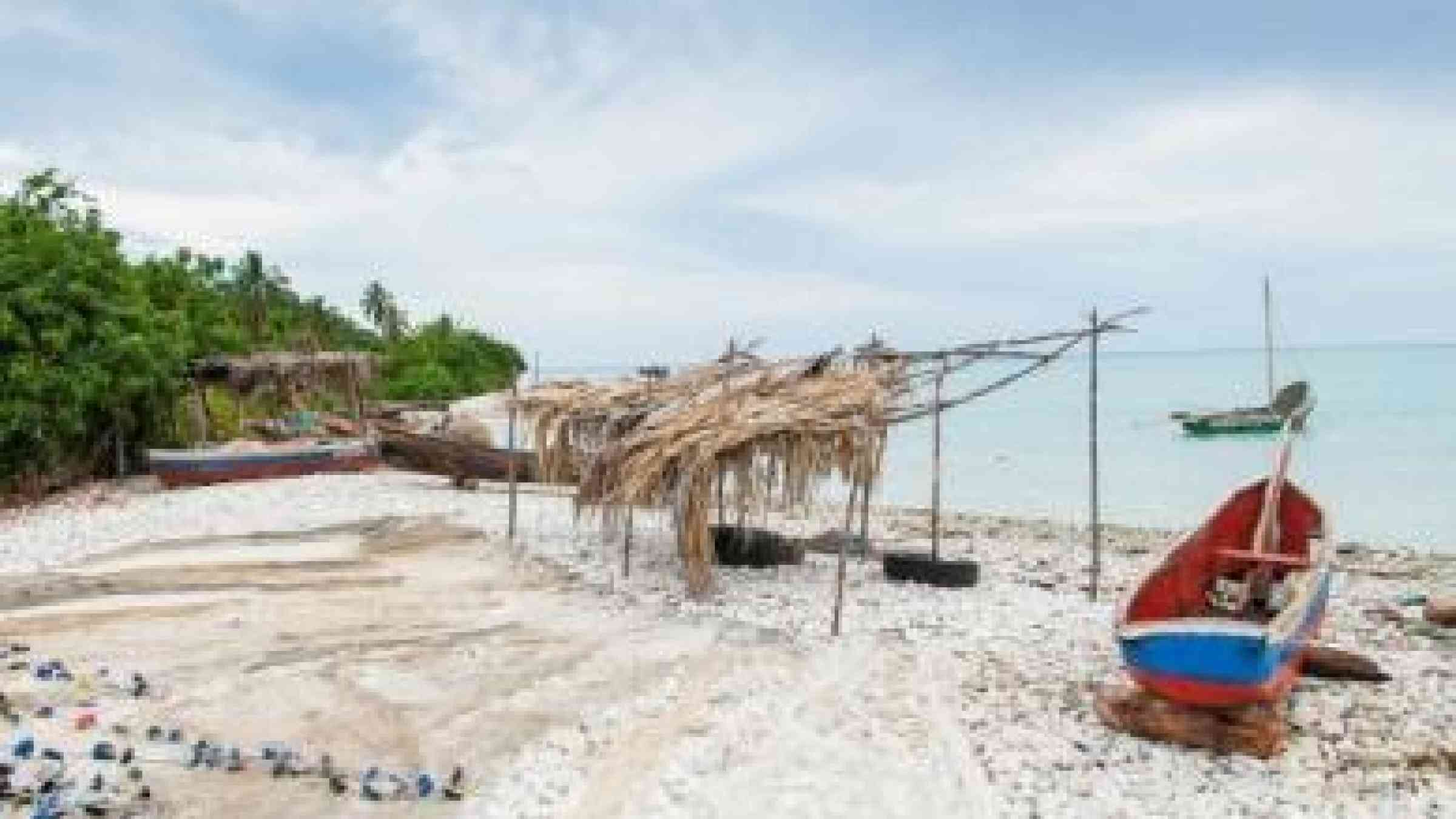UNEP: Countries turn to ecosystems to reduce risk amid concerns over more disasters

Strong commitments to ecosystem-based approaches for disaster risk reduction (Eco-DRR) were made at the Plenary Session on Ecosystems and Resilience at the Third World Conference on Disaster Risk Reduction (DRR). As negotiations for a post-2015 framework on DRR continue this week in Sendai, over 200 participants gathered at the Plenary Session to discuss how investments in the environment can help build resilience worldwide.
Her Royal Highness Princess Magriet, Kingdom of the Netherlands, delivered welcome remarks and called for more concerted efforts to invest in ecosystems as an effective way of reducing risk: "It is better to build on natural capital rather than destroy it and for this, we need cooperation at all levels".
Moderating the meeting, Ms. Cristiana Pasca-Palmer, Head of Climate Change, Environment and Natural Resources and Green Economy Unit, Directorate-General for International Cooperation and Development (DG DEVCO) of the European Union (EU), stressed in her opening statement that the EU is fully committed to Eco-DRR and scaling up this approach.
The participants of the Plenary Session discussed the challenges and opportunities in delivering ecosystem-based solutions, and the best ways of accelerating the implementation of ecosystem-based actions in the post-2015 framework. As highlighted by the UNISDR Global Assessment Report -15, tackling environmental degradation, restoring ecosystems such as mangroves and forests to buffer against disaster impacts, and broadening environmental impact assessments are an important part of the post-2015 DRR agenda.
"With 95% of disasters linked to water-related hazards, it is possible to reduce disaster risks by managing wetlands sustainably", stated Ms. Jane Madgwick, Chief Executive Officer of Wetlands International.
Today, an increasing number of countries around the world are applying ecosystem-based approaches for disaster risk reduction and building resilience to climate change. Ms. Alta Jean Baptiste, Director, Directorate of Civil Protection, Ministry of the Interior of Haiti, highlighted the importance of sustainably managing coastal zones especially in small island developing states such as Haiti. Mr. Moise Jean-Pierre from the Ministry of Environment of Haiti, presented government efforts, working with the United Nations Environment Programme (UNEP), to protect coastal and marine ecosystems for achieving sustainable livelihoods through fishing and "blue" tourism and for enhancing local resilience to disasters.
The Global Environmental Facility (GEF) is supporting Eco-DRR projects in Burkina Faso, Sri Lanka and Colombia, and has committed USD 100 million for integrated sustainable cities to support mayors in development and land-use planning, according to Dr. Naoko Ishii, Chief Executive Officer and Chairperson of the GEF.
Key "take-away" messages from the Plenary include: the importance of platforms that foster collaboration and institutional coordination, continuing to build the evidence base of the DRR functions of ecosystems, identifying champions, need for financing models to incentivize investments in Eco-DRR, and engaging civil society and the private sector.
Mr. Pa Ousman Jarju, Minister of Environment, Climate Change, Water Resources, Parks and Wildlife, the Gambia, stressed the importance of overcoming institutional silos and bringing together different actors and partnerships to accelerate Eco-DRR implementation.
Mr. Ivo Menzinger, Managing Director for the Asia-Pacific of Swiss Re, shared their collaboration with The Nature Conservancy to demonstrate the cost-effectiveness of ecosystem-based solutions, particularly in the case of oyster reefs. "Based on our study of hurricane Sandy, it is possible to reduce in a sustainable way 60% of disaster risk of which 40% can be ecosystem-based disaster risk reduction measures", stated Mr. Menzinger. "However, we need to continue building the evidence and data base in order to incorporate the role of ecosystems in risk modelling and assessments", he added.
Ms. Cristiana Pasca-Palmer (EU) further stated that, "The Partnership for Environment and Disaster Risk Reduction (PEDRR) has been instrumental in advancing recognition of ecosystem-based DRR".
PEDRR is a global alliance of UN agencies, NGOs, and specialist institutes that have actively advocated alongside Member States for a strong environment role in the post-2015 DRR framework. The Plenary Session was co-organized by PEDRR partners (UNEP, the International Union for Conservation of Nature, United Nations University, Wetlands International), as well as the World Food Programme, Convention on Biological Diversity, and the Ministry of Environment of Japan.
UNEP, in partnership with the EU, is implementing ecosystem-based approaches for disaster risk reduction (Eco-DRR) demonstration projects in Afghanistan, Haiti, Democratic Republic of the Congo and Sudan. These projects seek to improve ecosystems management to enhance their regulatory and provisioning services for risk reduction, demonstrate the cost-effectiveness of ecosystem-based approaches, and boost local and national capacities to integrate Eco-DRR in national and local development planning.
Further information on these pilot projects is available at link in the related links section below.
For more information:
News and Media, UNEP: unepnewsdesk@unep.org